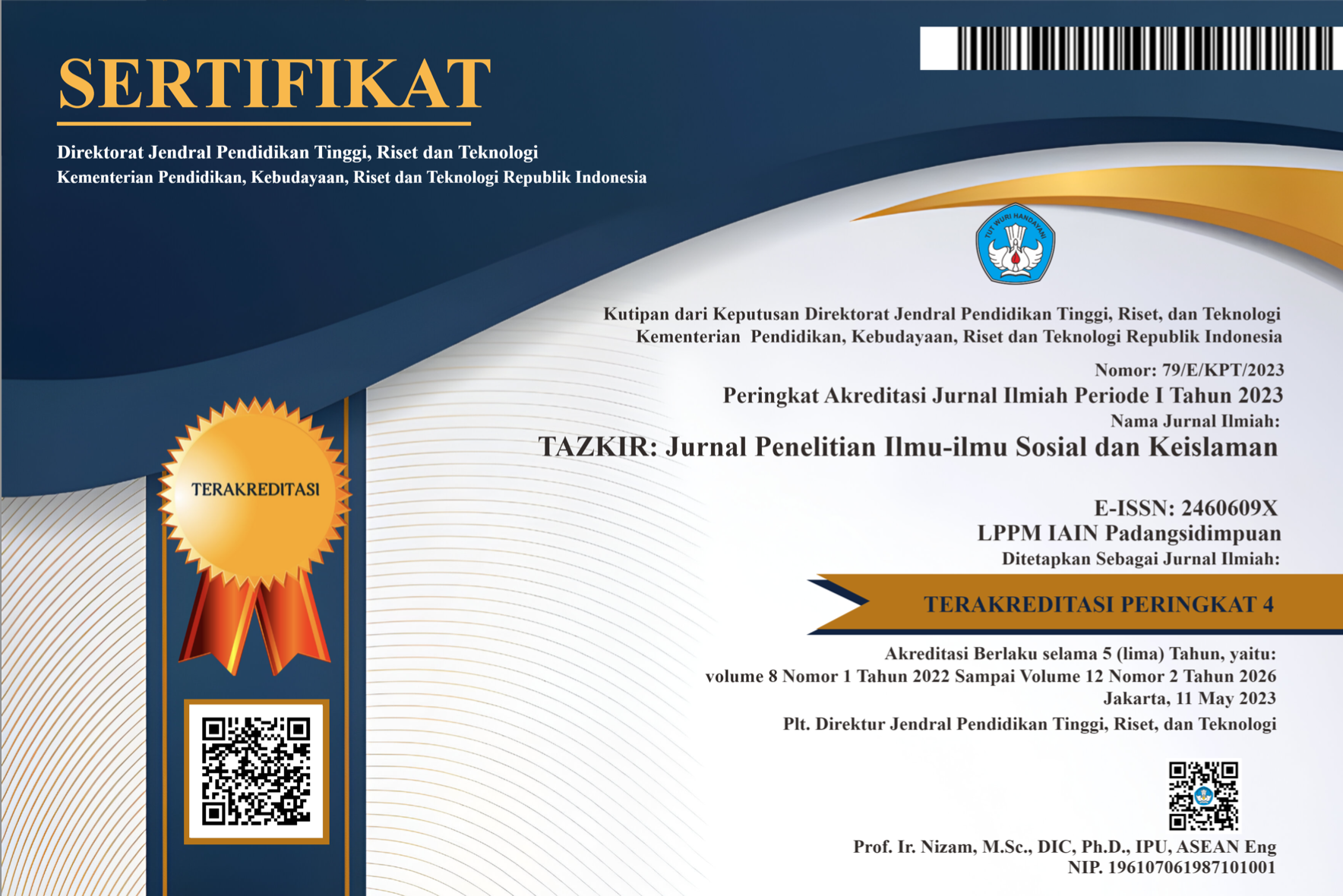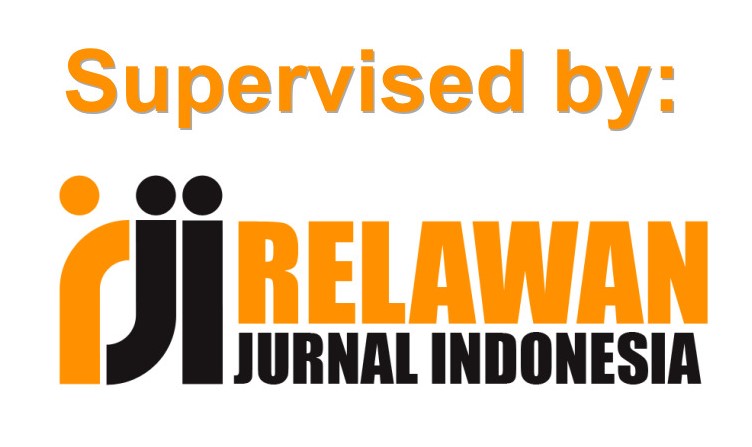Peran Perguruan Tinggi dalam Pemberdayaan Masyarakat Melalui Bank Mikro Waka
Abstract
Keywords
Full Text:
PDF [INDONESIA]References
Bagong Suyanto. (2001). “Kemiskinan Dan Pemberdayaan Masyarakat Miskin.” “Kemiskinan dan Pemberdayaan Masyarakat Miskin, October 2001. http://journal.unair.ac.id/filerPDF/_3_ Bagong.pdf.
Gania Balqis, Wizna, and Tulus Sartono. (2019). “Bank Wakaf Mikro Sebagai Sarana Pemberdayaan Pada Usaha Mikro, Kecil Dan Menengah.” Jurisdictie: Jurnal Hukum Dan Syariah 10, no. 2 (2019): 215–31. https://doi.org/10.18860/j.v10I2.7380.
Mulyawan Rahman. “E Book; Masyarakat, Wilayah Dan Pembangunan,” 2016. http://pustaka.unpad.ac.id/wp-content/uploads/2016/10/04-Buku-OK_opt.pdf.
Faujiah, A, (2018) “Bank Wakaf Mikro dan Pengaruhnya terhadap Inklusi Keuangan Pelaku Usaha Kecil dan Mikro (UKM),” 2nd Proceedings Annual Conference for Muslim Scholars, Tahun 2018
Rahajeng, Elsy, and S Kom. (2021). “Peran Perguruan Tinggi Melalui Pengabdian Kepada Masyarakat Oleh Dosen Dalam Rangka Mendukung Program Pemerintah Dalam Pengentasan Kemiskinan.” Accessed May 5, 2021.
Ramadhan, Muhammad Faiq, and Raditya Sukmana. (2020). “Peran Bank Wakaf Mikro Dalam Penguatan Modal Dan Pemberdayaan Usaha Mikro Di Surabaya.” Jurnal Ekonomi Syariah Teori Dan Terapan 6, no. 11 (January 21, 2020): 2172. https://doi.org/10.20473/vol6iss201911pp2172-2184.
M. Nazir, “Metode Penelitian” (Jakarta: Ghalia Indonesia)
Muhammad Musa, Metodologi Penelitian,( Jakarta : Fajar Agung, 1988 )
Suryana, Sayan. “Peran Perguruan Tinggi Dalam Pemberdayaan Masyarakat.” Pendidikan Rabbani 2, no. 2 (2018): 368–79. https://journal.unsika.ac.id/index.php/rabbani/article/view/1443.
Zubaidi. “Pengembangan Masyarakat; Wacana Dan Praktek.” ebook, March 2013. http://repository.iainbengkulu.ac.id/4430/1/BUKU PENGEMBANGAN MASYARAKAT %281%29.pdf.
DOI: https://doi.org/10.24952/tazkir.v7i1.4111
Refbacks
- There are currently no refbacks.
Copyright (c) 2021 Tazkir : Jurnal Penelitian Ilmu-ilmu Sosial dan Keislaman

This work is licensed under a Creative Commons Attribution-ShareAlike 4.0 International License.






